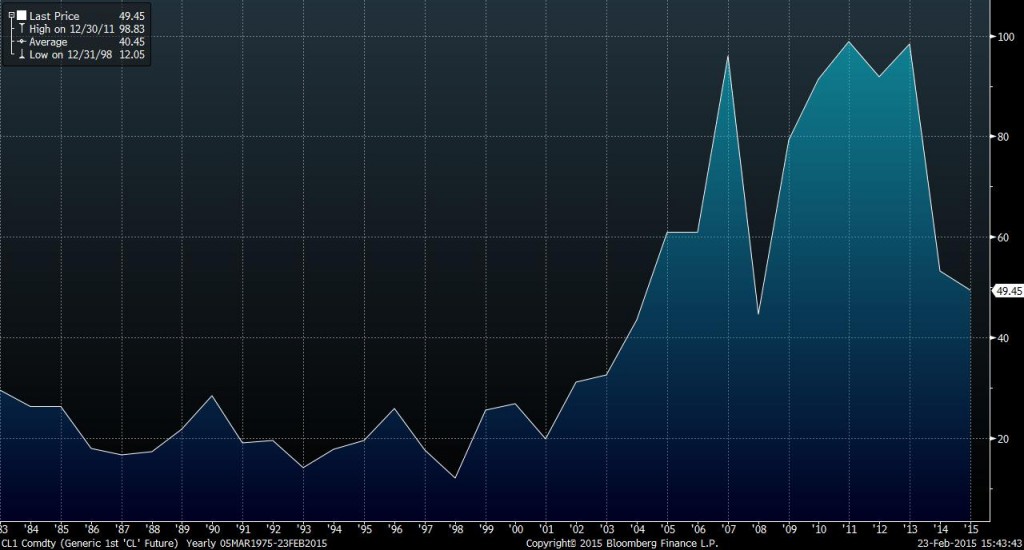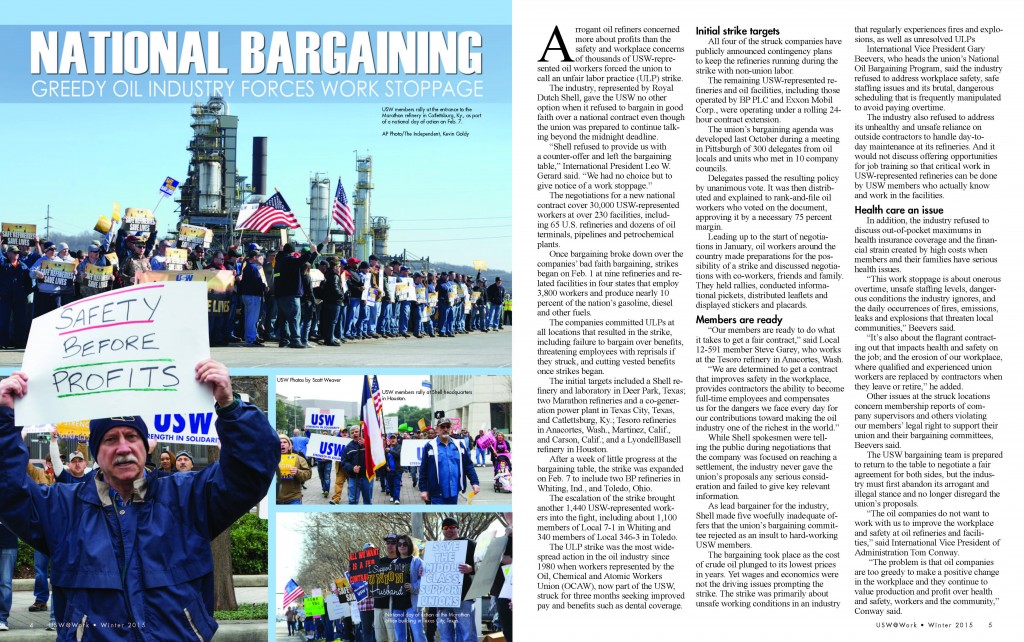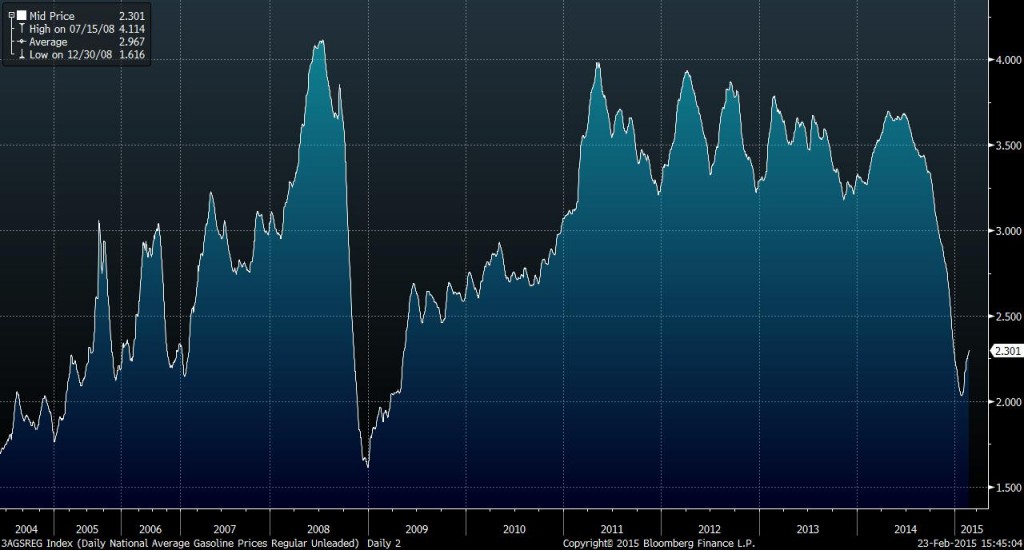Gasoline Prices Continue Edging Up
As if the dwindling rig counts, record inventories and falling temperatures weren’t enough for the oil and gas industry, another complication is arising at the tail-end of the system. Strikes spearheaded by the United Steelworkers Union (USW) increased on February 23, 2015, and now consists of a total of 15 facilities, including 12 refineries. The affected regions represent approximately 20% of all United States refineries.

The strike is the largest refinery strike since 1980 and is entering its fourth week. USU is demanding higher safety measures and a wage hike as it continues its standoff with Royal Dutch Shell (ticker: RDS.B). “The potential for unplanned disruptions increases in our view,” says a note from Wells Fargo Securities. “The strike appears to be transitioning into a battle of wills; the union’s request for higher pay and a substantial expansion of opportunity for its members and the refining sector’s desire to maintain flexibility within its operations.”

The note explains the defining factors for both sides include, A) how long the union members are willing to sacrifice their pay checks and B) whether or not refineries can operate safely and efficiently without a chunk of its work force. A Southern California refinery operated by ExxonMobil (ticker: XOM) exploded last week and caused minor injuries, but the accident is not related with the current strike.
Wells Fargo further explains that strikes are not unusual and the union’s workers can be replaced by non-contract employees, but timing of this particular strike (considering planned turnarounds and the switch to summer-grade gas) may impact the market in the near-term.
Meanwhile, the USW has been posting news releases highlighting the risks of working at a refinery and blaming the “greedy oil industry” for the stoppage. “This work stoppage is about onerous overtime, unsafe staffing levels, dangerous conditions the industry ignores, and the daily occurrences of fires, emissions, leaks and explosions that threaten local communities,” said Gary Beevers, the leader of the National Oil Bargaining Program. Another release details a handful of safety issues that have occurred since 2008.
Shell has not publicly commented on the matter. Media outlets have covered the strike and the season’s rising gasoline prices.

Important disclosures: The information provided herein is believed to be reliable; however, EnerCom, Inc. makes no representation or warranty as to its completeness or accuracy. EnerCom’s conclusions are based upon information gathered from sources deemed to be reliable. This note is not intended as an offer or solicitation for the purchase or sale of any security or financial instrument of any company mentioned in this note. This note was prepared for general circulation and does not provide investment recommendations specific to individual investors. All readers of the note must make their own investment decisions based upon their specific investment objectives and financial situation utilizing their own financial advisors as they deem necessary. Investors should consider a company’s entire financial and operational structure in making any investment decisions. Past performance of any company discussed in this note should not be taken as an indication or guarantee of future results. EnerCom is a multi-disciplined management consulting services firm that regularly intends to seek business, or currently may be undertaking business, with companies covered on Oil & Gas 360®, and thereby seeks to receive compensation from these companies for its services. In addition, EnerCom, or its principals or employees, may have an economic interest in any of these companies. As a result, readers of EnerCom’s Oil & Gas 360® should be aware that the firm may have a conflict of interest that could affect the objectivity of this note. The company or companies covered in this note did not review the note prior to publication. EnerCom, or its principals or employees, may have an economic interest in any of the companies covered in this report or on Oil & Gas 360®. As a result, readers of EnerCom’s reports or Oil & Gas 360® should be aware that the firm may have a conflict of interest that could affect the objectivity of this report.







